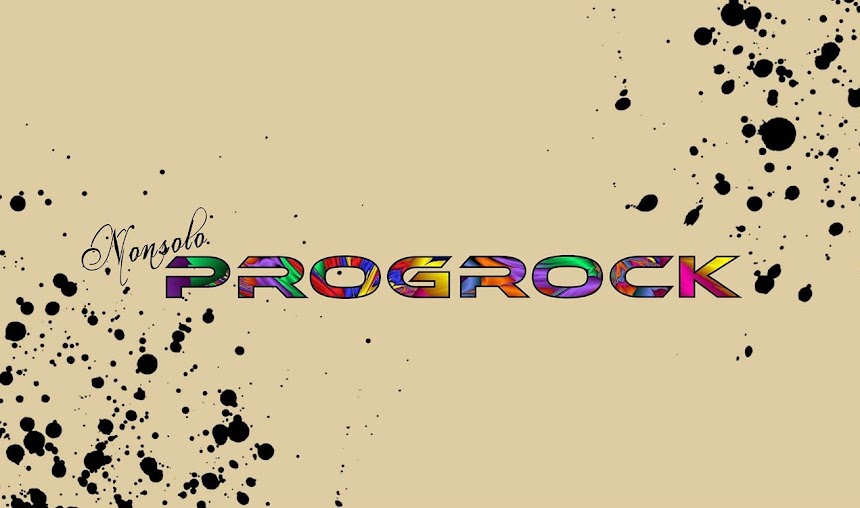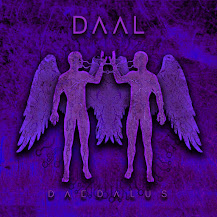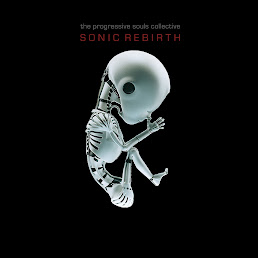FABRIZIO TAVERNELLI - Resa Incondizionata
Lo Scafandro / Audioglobe
Genere: Cantautore / Alternative
Supporto: cd / Digital – 2024
L’artista
Fabrizio Tavernelli si è saputo ritagliare nel tempo un posto in luce nel
cantautorato, grazie al modo di affrontare i temi sociali e a uno stile
musicale decisamente personale, fra influenze Punk, psichedeliche e uno sguardo
agli anni ‘80. Cantante, produttore, musicista,
scrittore. Attivo negli anni ’80 con En Manque D’Autre e dal ’93 al 1999 con
gli AFA, con i quali incide per Sugar di Caterina Caselli e Dischi del
Mulo/Consorzio Produttori Indipendenti.
Spendo
immediatamente due parole per l’artwork a cura di Marco Marastoni (Gruppo
Saldatori SRL), davvero intrigante con delle belle immagini che accompagnano i
testi facendo immergere l’ascoltatore a pieno titolo nei racconti. Ho sempre
apprezzato e sottolineato coloro che hanno capito l’importanza di associare
indelebilmente immagini/musica e Tavernelli sposa in pieno questa nobile causa.
Ecco
alcuni estratti del pensiero dell’autore: “Dichiaro la mia Resa Incondizionata
alle opposte fazioni, alle opposte tifoserie.
Dichiaro
la mia Resa Incondizionata al gigantismo e ai grandi eventi.
Dichiaro
la mia Resa Incondizionata al guittismo di corte.
Dichiaro
la mia Resa Incondizionata alle intelligenze Artificiali/Artificiose, ho
nostalgia delle leggi della robotica.
Dichiaro
la mia Resa Incondizionata all'isteria, allo stato di emergenza perenne.
Dichiaro
la mia Resa Incondizionata alla Psicopolizia, alle armi, alle guerre tra i
poveri del pianeta, alle guerre per procura, alle sceneggiature di guerra, ai
set cinematografici/bellici, al giornalismo embedded, alle guerre perse in
partenza, a chi si pulisce il sedere con la mia bandiera bianca.
Mi
arrendo a tutte le propagande. Viva gli alieni, la fauna allogena,
l'esobiologia, la zombitudine.”.
La
riuscita dell’album è avvenuta grazie al crowdfunding, e tutti coloro che hanno
partecipato sono menzionati all’interno dell’edizione cartonata del disco.
Con
“Gigantismo” l’autore inizia il percorso sonoro, e che non sia musica scontata
si apprende immediatamente sin dai primi passaggi che lasciano spazio a
differenti innesti acidi, duri, psichedelici tendenti a un dotto Punk moderno.
Con lui suonano Marco Santarello (chitarra, cori), Alessandro De Nito
(minimoog), Marco Tirelli (basso) e Lorenzo Lusvardi (batteria) che è anche
colui che segue le registrazioni effettuate al Teatro Asioli Di Correggio. “Pomodori”
vede Giorgio Canali alla voce e armonica, qui le atmosfere diventano ancor più
grevi e pessimistiche, un senso di alienazione accoglie lo stato d’animo. Solo
il ritornello riesce a stemperare il tutto. Tavernelli canta e recita i testi
con veemenza, un evidenziatore per le parole scritte.
“Ci
Sta” stempera l’ambiente con piano e voce, una ballata profonda, dove la musica
scalda il cuore come certe ballate dei Blackfield. Il movimento è impreziosito
dalla viola di Maria Stefancu.
Un'altra
carta vincente è la cura per gli arrangiamenti, cosa che purtroppo oggi troppo
spesso viene a mancare. Intrigante la ritmica di “Neuroni Specchio” con sprazzi
Funk in una sorta di Daniele Silvestri corrucciato in cui viene preso in
analisi il carattere forgiato dagli eventi di Tavernelli.
Segue
“Il Gioco Non Vale La Candela”, dolorosa considerazione sulla vita in una punta
di ottimismo riversata dentro una musica gradevole, e un bell’intervento
strumentale nella parte centrale.
“Immolarsi
E’ Immorale” ha una cura dei particolari che la rende una ballata profonda. Il
brano più lungo dell’album con i sette minuti abbondanti s’intitola “Afa 2023”,
l’uso della voce è ancora una volta miscelata fra canto e recita. La chitarra è
dura e dialoga con la voce. All’opposto è la breve danzereccia e ironica
“Atetigira”. “Pangasio” fa il verso ai Negroamaro, ma è solo un’apparenza,
perché il seguito è incastonato nel mondo personale di Tavernelli. Con “Metti
Il Mulo” non ci si discosta molto da quanto genericamente descritto, e la
chiusura spetta alla strumentale “In Definitiva” con Manitù Rossi al clarino,
un pezzo dagli sprazzi psichedelici.
“Resa
Incondizionata” è un album lucido, maturo, ironico, ficcante, diretto e senza
filtro, come dovrebbe essere un lavoro di un cantautore che di certo non segue
la massa e che si vuole sentire libero, come in teoria dovremmo esserlo tutti…
Ma lo siamo? MS
Versione Inglese:
FABRIZIO
TAVERNELLI – Resa Incondizionata
Lo
Scafandro / Audioglobe
Genre: Songwriter / Alternative
Support: cd / Digital - 2024
Artist Fabrizio Tavernelli has been able to carve out
a place for himself in the singer-songwriter spotlight over time, thanks to his
way of dealing with social issues and a decidedly personal musical style, amid
Punk, psychedelic influences and a glimpse of the 1980s. Singer, producer,
musician, writer. Active in the 1980s with En Manque D'Autre and from '93 to
1999 with AFA, with whom he recorded for Caterina Caselli's Sugar and Dischi
del Mulo/Consorzio Produttori Indipendenti.
Six albums he has released since 2010 proving to be a
careful analyzer of the times. With "Resa Incondizionata" the themes
change from the past, this time a cloud of pessimism sharply truncates the
desire to hope, to build, to believe, leaving a faint hope for the advent of an
extraterrestrial people who can intervene on the human race, a little like
Eugenio Finardi sang in the famous "Extraterrestre”.
I immediately spend two words for the artwork by Marco
Marastoni (Gruppo Saldatori SRL), really intriguing with beautiful images that
accompany the lyrics making the listener fully immerse in the stories. I have
always appreciated and emphasized those who understood the importance of
indelibly associating images/music, and Tavernelli fully espouses this noble
cause.
Here are excerpts of the author's thoughts, "I
declare my Unconditional Resentment to the opposing factions, to the opposing
fans.
I declare my Unconditional Surrender to gigantism and
big events.
I declare my Unconditional Resignation to court
guittism.
I declare my Unconditional Resignation to
Artificial/Artificial intelligences, I long for the laws of robotics.
I declare my Unconditional Resignation to hysteria, to
the perpetual state of emergency.
I declare my Unconditional Surrender to
Psychopolitics, to weapons, to wars among the poor of the planet, to proxy
wars, to war scripts, to film/war sets, to embedded journalism, to wars lost at
the start, to those who wipe their butts with my white flag.
I surrender to all propaganda. Long live aliens,
allogenic fauna, exobiology, zombification."
The success of the album came about through
crowdfunding, and all those who participated are mentioned inside the hardback
edition of the record.
With "Gigantismo" the author begins the
sonic journey, and that it is not obvious music one learns immediately from the
first passages that leave room for different acid, hard, psychedelic grafts
tending to a modern Punk duct. Playing with him are Marco Santarello (guitar,
backing vocals), Alessandro De Nito (minimoog), Marco Tirelli (bass) and
Lorenzo Lusvardi (drums), who is also the one who follows the recordings made
at Teatro Asioli Di Correggio. "Pomodori" features Giorgio Canali on
vocals and harmonica; here the atmospheres become even more grim and
pessimistic, a sense of alienation greets the mood. Only the refrain manages to
dilute it. Tavernelli sings and recites the lyrics vehemently, a highlighter
for the written words.
"Ci Sta" dilutes the mood with piano and
vocals, a deep ballad where the music warms the heart like certain Blackfield
ballads. The movement is enhanced by Maria Stefancu (viola).
Another trump card is the care taken with the
arrangements, something that is unfortunately too often lacking today.
Intriguing is the rhythmic "Neuroni Specchio" with flashes of Funk in
a sort of rangy Daniele Silvestri in which the character forged by Tavernelli's
events is examined.
"Il Gioco Non Vale la Candela" follows, a
painful consideration of life with a hint of optimism poured inside pleasant
music, and a nice instrumental intervention in the middle section.
"Immolarsi E’ Immorale" has an attention to
detail that makes it a deep ballad. The longest track on the album with the full
seven minutes is titled "Afa 2023," the use of vocals is again mixed
between singing and acting. The guitar is harsh and dialogues with the voice.
At the opposite end of the spectrum is the short, ironic dancey "Atetigira".
"Pangasio" harkens back to Negroamaro, but it is only an appearance,
because the sequel is embedded in Tavernelli's personal world. With "Metti
Il Mulo", there is not much of a departure from what is generically
described, and closure falls to the instrumental "In Definitiva" with
Manitù Rossi on clarinet, a piece with psychedelic flashes.
"Resa Incondizionata" is a lucid, mature,
ironic, prickly, direct and unfiltered album, as should be the work of a
singer-songwriter who certainly does not follow the masses and who wants to
feel free, as in theory we all should be... But we are? MS









